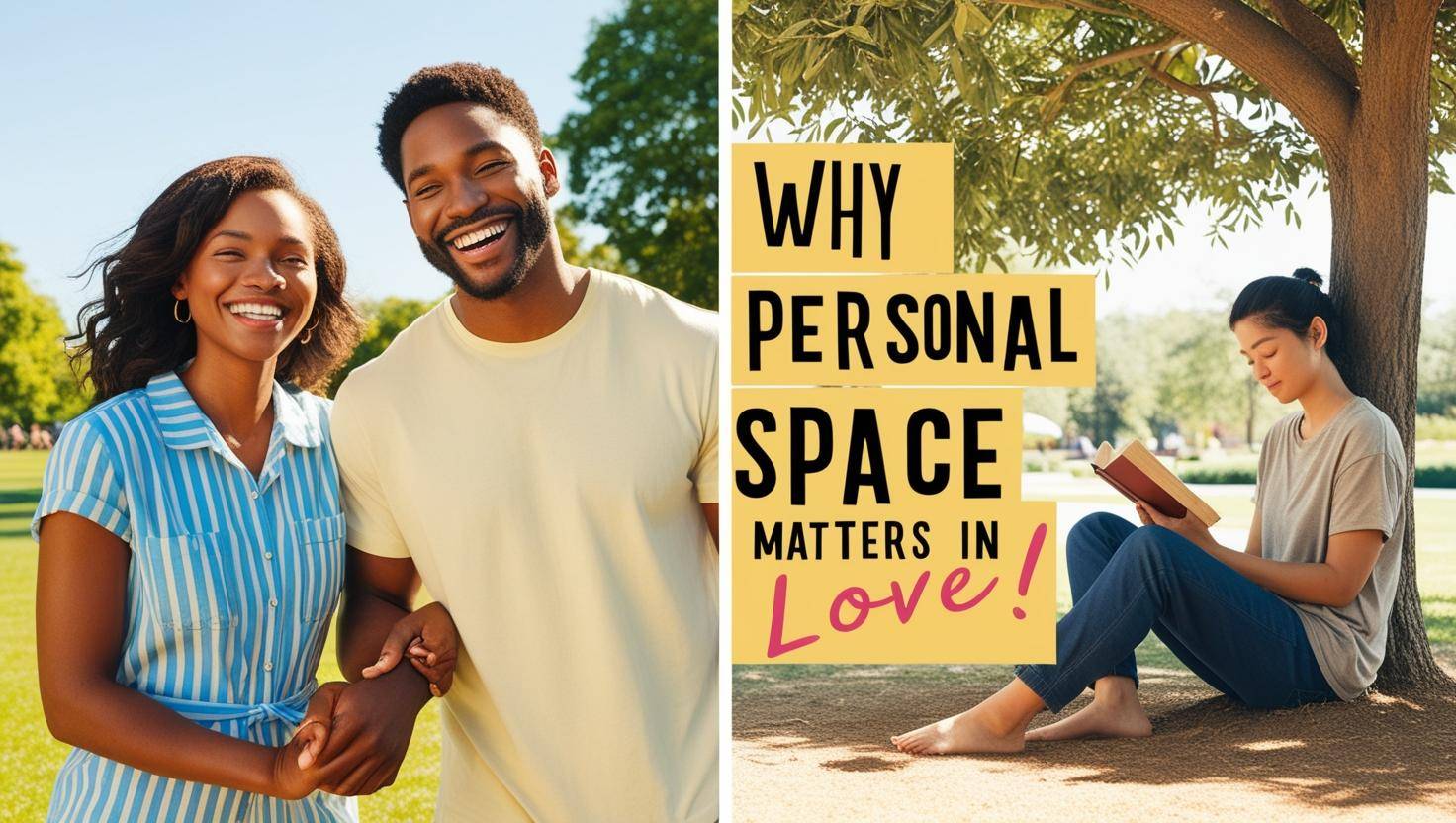Introduction
Personal space is a crucial element in any healthy relationship. While love and intimacy bring two people together, maintaining a sense of individuality is equally important. Many people mistakenly believe that spending every waking moment with their partner is a sign of true love, but in reality, too much closeness can lead to tension, dependency, and even resentment.
In this article, we will explore the importance of personal space in a relationship, how it contributes to a healthy partnership, the consequences of neglecting it, and practical ways to balance intimacy and individuality.
What Is Personal Space in a Relationship?
Personal space refers to the physical, emotional, and psychological boundaries that allow individuals to maintain a sense of self within a relationship. It includes:
Physical Space: Having time and space for oneself, such as engaging in solo hobbies, going for walks alone, or having a personal area in the home.
Emotional Space: The freedom to process feelings, thoughts, and emotions independently without feeling suffocated.
Mental Space: Having time to think, reflect, and make personal decisions without constant interference.
Social Space: Maintaining friendships, family relationships, and professional connections outside of the romantic partnership.
Respecting these aspects of personal space fosters a balanced relationship where both partners feel secure, independent, and valued.
Why Is Personal Space Important in a Relationship?
1. Encourages Individual Growth
A healthy relationship consists of two individuals who continue to grow personally and professionally. Personal space allows each partner to:
Pursue hobbies and passions.
Focus on career goals.
Develop new skills and interests.
Without personal space, partners may feel stagnant or lose their sense of identity, leading to dissatisfaction and frustration.
2. Reduces Conflict and Resentment
Spending too much time together can sometimes lead to irritation and arguments over small issues. Having space allows both partners to:
Take a break from disagreements.
Process emotions before reacting impulsively.
Appreciate each other’s presence more when they reunite.
Time apart helps partners approach conflicts with a clear mind and a more rational perspective.
3. Enhances Emotional Connection
Ironically, spending time apart can strengthen a relationship. When partners have their own experiences, they bring fresh energy and stories into the relationship. This helps:
Prevent emotional burnout.
Create anticipation and excitement when reconnecting.
Encourage meaningful conversations instead of routine interactions.
Healthy distance makes reunions more fulfilling and strengthens the emotional bond.
4. Prevents Codependency
Codependency occurs when one or both partners become overly reliant on each other for happiness, emotional support, or validation. Signs of codependency include:
Feeling anxious when apart.
Neglecting personal interests or friendships.
Making decisions based solely on the partner’s preferences.
Personal space helps maintain a healthy balance between togetherness and independence, reducing the risk of codependency.
5. Improves Self-Esteem and Confidence
Maintaining personal space allows individuals to develop their self-worth outside of the relationship. When partners feel secure and confident on their own, they bring more positivity into the relationship. This leads to:
Increased self-assurance.
A stronger sense of purpose.
A more attractive and dynamic personality.
A relationship thrives when both partners feel complete and fulfilled as individuals.
6. Boosts Attraction and Desire
Mystery and independence can reignite the spark in a relationship. Constant closeness can sometimes lead to boredom or routine, but maintaining personal space helps:
Keep the relationship fresh and exciting.
Enhance attraction by allowing partners to miss each other.
Encourage both partners to put effort into the relationship.
Distance can make the heart grow fonder, strengthening emotional and physical intimacy.
Signs That You Need More Personal Space in Your Relationship
Not all couples naturally establish healthy boundaries. Here are some signs that indicate a need for more personal space:
Feeling overwhelmed or suffocated by your partner’s constant presence.
Frequent arguments over small or insignificant matters.
Losing interest in personal hobbies and social activities.
Feeling exhausted rather than energized after spending time together.
A decrease in attraction or excitement in the relationship.
If you recognize any of these signs, it may be time to set clear boundaries and prioritize personal space.
How to Maintain Personal Space in a Relationship
1. Communicate Openly and Honestly
Discussing the need for personal space can be challenging, but open communication is key. Partners should:
Express their need for space without making the other person feel rejected.
Reassure each other that personal space does not mean emotional distance.
Agree on boundaries that work for both individuals.
A healthy discussion helps prevent misunderstandings and strengthens mutual respect.
2. Set Clear Boundaries
Boundaries define what is acceptable and what isn’t in terms of personal space. Examples of healthy boundaries include:
Having time alone to relax or recharge.
Maintaining friendships and social outings without the partner.
Respecting each other’s personal belongings and privacy.
Clearly defining these boundaries ensures both partners feel comfortable and valued.
3. Pursue Individual Interests
Encouraging each other to follow personal passions can greatly benefit the relationship. This may include:
Taking up a hobby, such as painting, reading, or sports.
Joining a class or community group.
Traveling or exploring new experiences independently.
Personal fulfillment leads to a richer and more dynamic relationship.
4. Schedule ‘Me Time’ Regularly
Spending time alone should be intentional. Partners can:
Plan solo outings, such as coffee dates, hikes, or movie nights.
Dedicate time to self-care routines.
Enjoy quiet moments of reflection or meditation.
Having a routine for personal time helps maintain a healthy balance.
5. Encourage Social Independence
Strong relationships thrive when both partners maintain their external friendships and family connections. Encouraging social independence includes:
Spending time with friends without the partner.
Engaging in professional networking or mentorship.
Attending family events separately if desired.
This prevents isolation and strengthens both the relationship and personal well-being.
6. Respect Each Other’s Personal Space
Respect is fundamental in maintaining personal space. This means:
Avoiding excessive texting or calls when apart.
Not prying into personal messages, emails, or belongings.
Trusting each other and not assuming the worst when one partner needs space.
Mutual trust and respect reinforce a strong and healthy connection.
Conclusion
Personal space is not a sign of a failing relationship; rather, it is a sign of a mature and secure one. By allowing each other to grow individually, partners can create a stronger, more fulfilling bond.
Healthy relationships thrive on a balance of togetherness and independence. By setting clear boundaries, pursuing personal interests, and maintaining open communication, couples can build a relationship that is both intimate and liberating.
Ultimately, the key to a lasting relationship is mutual respect, trust, and the understanding that space and love can coexist harmoniously.


